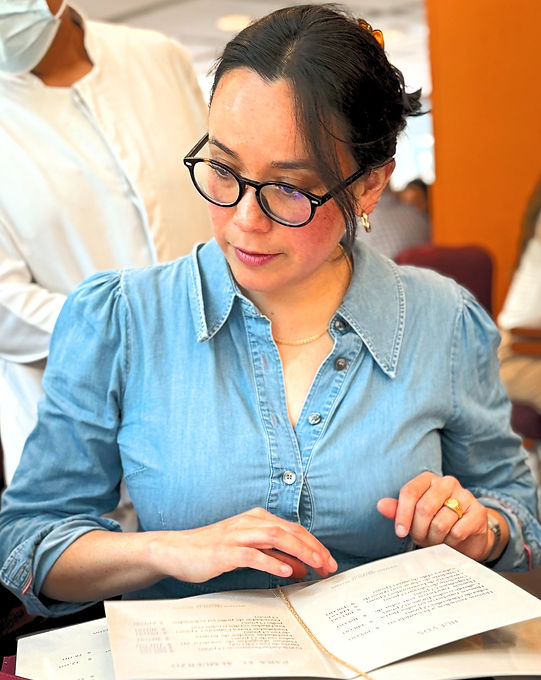
THE SIGNIFICANCE OF FORENSIC CITIZENSHIP
Uncovering New Approaches to Human Rights through Forensic Citizenship
My project introduces a different approach to addressing human rights violations by investigating existing forms of forensic citizenship in Latin America; opening a new avenue for understanding and advocating for justice and forensic science practice.
Leverhulme Early Career Fellowship
Dr Arely Cruz Santiago
My project, Forensic Citizenship: Science and Expertise in Latin America, unearthed the situated scientific practices developed by families searching for enforced disappeared persons in Argentina and Colombia since the 1970s. These practices range from early engagements with DNA technologies to identify victims and familial relations, to creating personal collections and archives that record families' investigative processes to locate their loved ones. The Leverhulme fellowship allowed me to re-examine my work on citizen forensics (2016, 2017, 2020) by adding new ethnographic and archival research that problematises existing forensic investigation models, revealing alternative ways to understand security, justice, and conflict.


Forensic Citizenship in a nutshell
My new ethnographic and archival research problematises existing forensic investigation models, revealing alternative ways to understand security, justice, and conflict. Therefore, my current research agenda moves forward the discipline of Sociology of Forensic Science by decentering the laboratory and the courtroom as the spaces where forensic knowledge is produced.
Instead, I recover and analyse forensic technologies, security strategies and intelligence operations that women searching for their kin in Latin America have crafted to face conflict and state repression. Mainstream historical and sociological accounts have often ignored these strategies; in response, I am producing the first counter-history of human rights forensics in Latin America.


Forensic Citizenship theorises how gendered practices have been strategically mobilised by the victims of violence and their allies to evidence crimes against humanity. Based on this knowledge I am developing frameworks aimed at transforming policies and evidentiary frameworks in Latin America and beyond.

FOCUSED AREAS
Rethinking power and expertise in Argentina and Colombia
SEARCH AND IDENTIFICATION
My project focuses on leveraging scientific methods to facilitate the search and identification of enforced disappeared persons, offering a new perspective in the field of forensic citizenship.


ADVOCACY AND LEGAL SUPPORT
I analyse the ways in which people navigate legal systems that systematically hide evidence, avoid responsibility, or sometimes even persecute the victims of human rights violations.
COMMUNITY ENGAGEMENT
I use participatory research to understand the ways in which mothers of the disappeared fight injustice through forensic strategies. In my previous research I co-created a citizen-led DNA database with mothers of the disappeared in Mexico.

